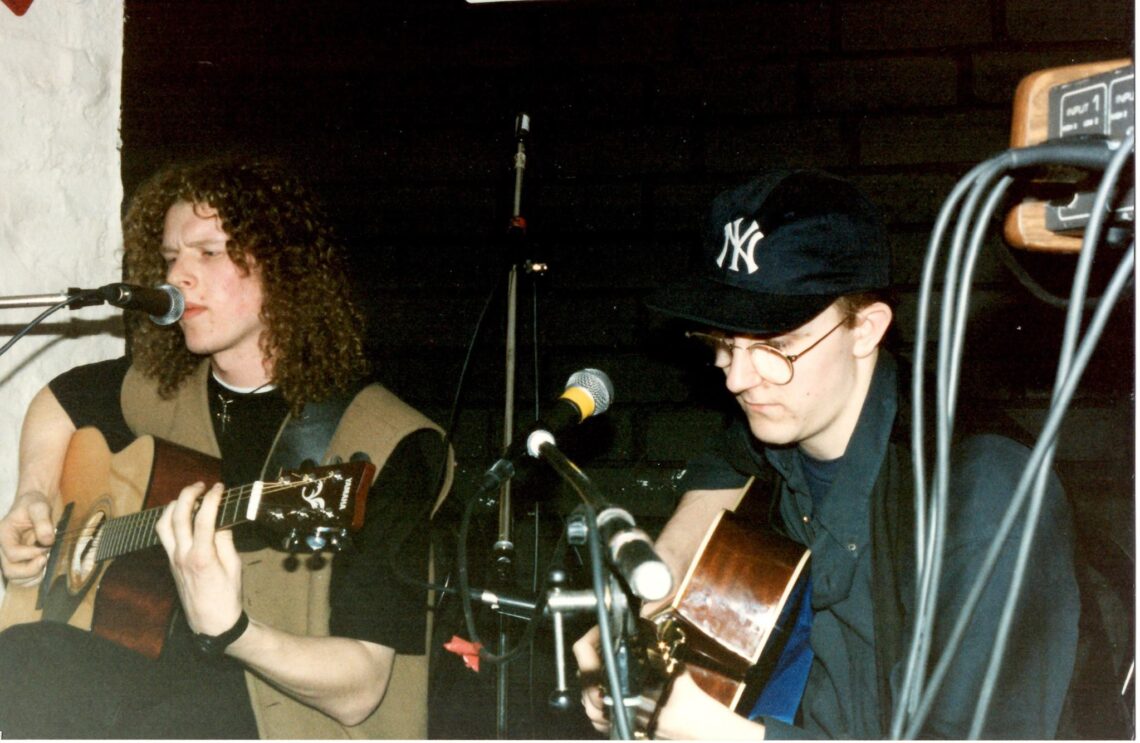I have played the guitar since I was 14. One of its chief attractions for me is the guitar’s capacity to express emotion. To be honest, I’m not that good at expressing mine in any other way. ‘I feel sad’ doesn’t quite capture emotion in the same way a lengthy bend on my B string can. And nothing says ‘I’m annoyed’ as well as a tritone.
My influences were all players who knew how to ‘speak’ with their guitars (see here, here, here, or here for examples). For some reason, I hear emotions in some sounds. I don’t merely mean that the music causes me to have an emotion. I mean the music itself possesses emotional properties.
Someone might suggest that sounds can possess no such things. Only people have emotions. I admit, this is eminently correct. People have emotions; sound waves don’t feel anything. However, if so, then we are left with an equally implausible option.
One could say that sounds are merely waves that cause movement in my ear drums. That’s it. In other words, there is no reason to feel anything when listening to music. Apparently, we do so, but we can say no more about it. We can’t explain it in any way.
The problem with this view is the plain fact that it we do think it is rational to feel some emotions in response to hearing certain pieces. I don’t listen to the lighthearted joy of a blues jam and think, ‘Oh look, I am smiling and laughing for no reason.’ I think the music conveys something to me and I am responding correctly.
Suppose you listen to Tchaikovsky’s Symphony 6 with a friend. Your friend starts joyously dancing around laughing. Surely, you’d think your friend was responding incorrectly to the music. Thus, there is something about the music that determines whether or not a response to it is correct.
So, on the one hand, sounds don’t feel anything. People do. Yet, on the other hand, it is rational to feel certain emotions in response to certain pieces of music. Thus, there must be some reason found in the music to explain emotions felt in response to those pieces, but the reason can’t be that the sounds of the music possess emotions.
This sounds like an impossible state of affairs. We want to say that music can possess expressive properties. But we’ve already said that sound can’t have emotions. So how could it possess emotional properties? It can’t.
The solution, I think, is that sounds can resemble human expressions of emotions. This was one of my chief reasons for taking up the guitar. It could say something that I couldn’t put into words. How so? Well, I could mimic expressions of fun, loneliness, joy, and lament with notes played in a certain way. When a person weeps uncontrollably, that sound can be imitated by the bent notes of a guitar. The light rhythm of an arpeggio can resemble a joyful dance. In the blues, a player must learn to converse with oneself. Playing one phrase should lead one to play an ‘answering phrase.’ Guitar solos often resemble various kinds of conversations. Some sound like arguments, others like intimate conversations between couples.
Hence, the emotional content of music is not in the sound per se. It is is its resemblance to a kind of human behavior used to express emotion.
And, yes, that’s me in the picture with my good friend, Ian.
[Based loosely on Paul Boghossian’s argument in “Explaining Musical Experience” in Philosophers on Music ed. Kathleen Stock. OUP, 2007]





